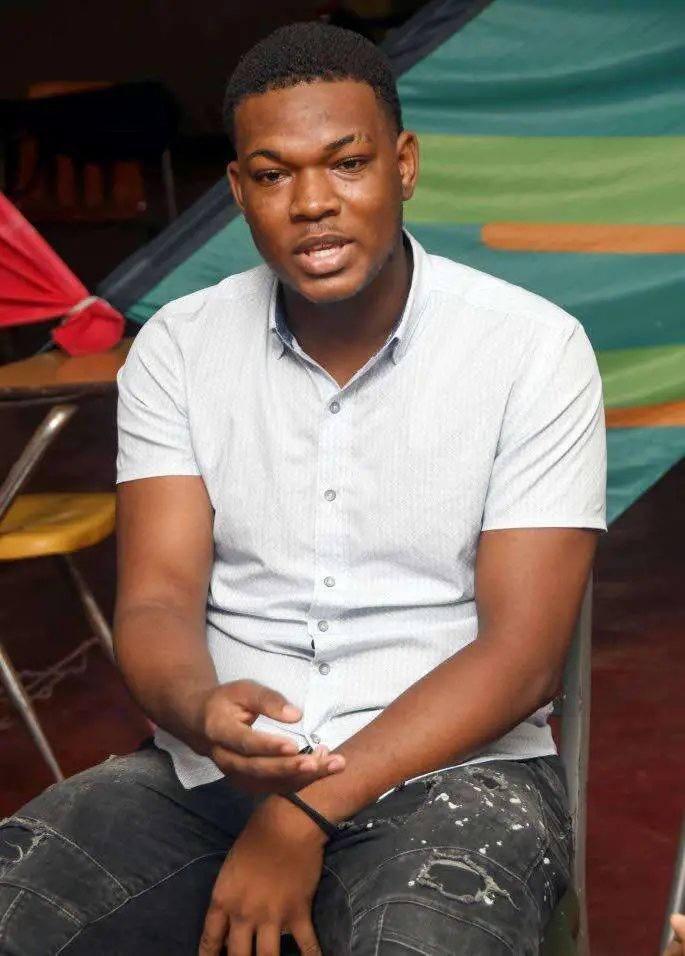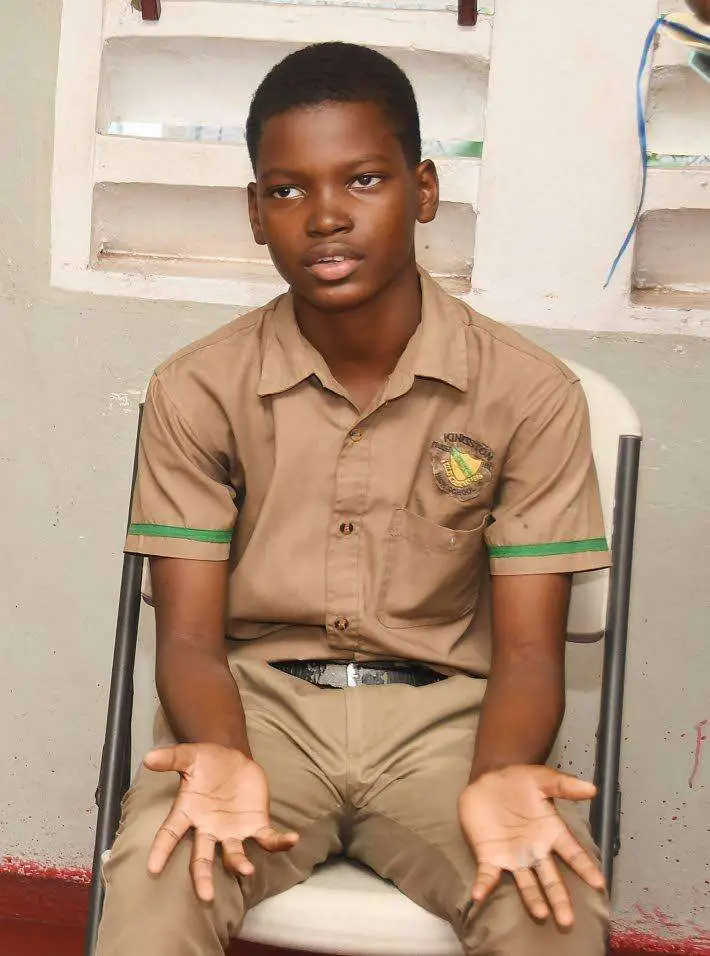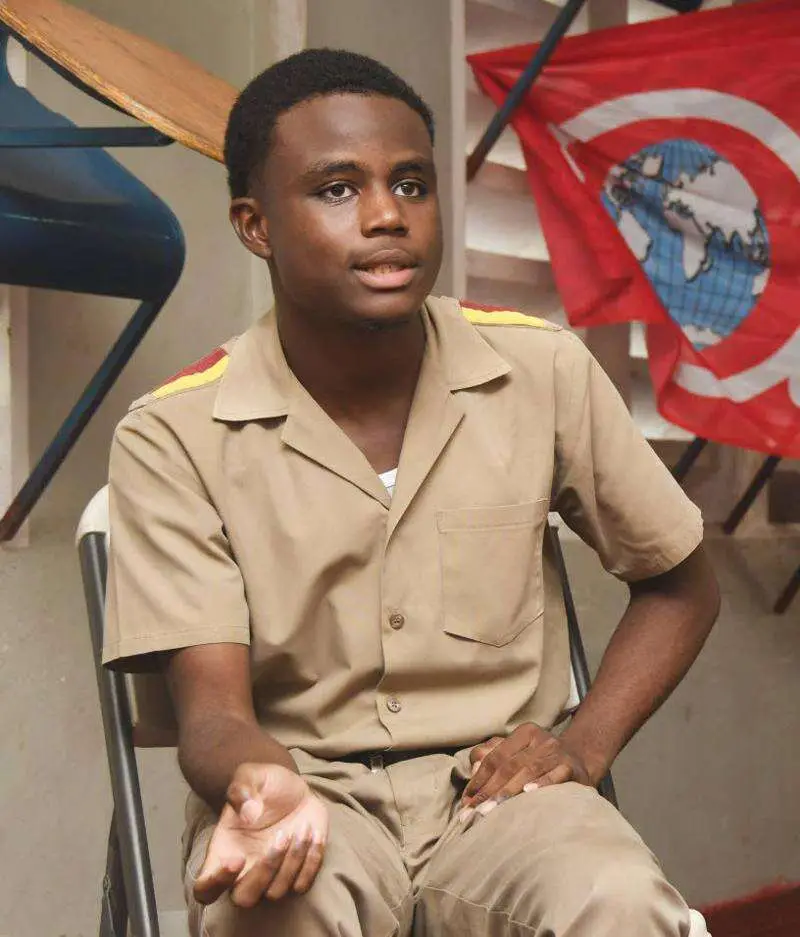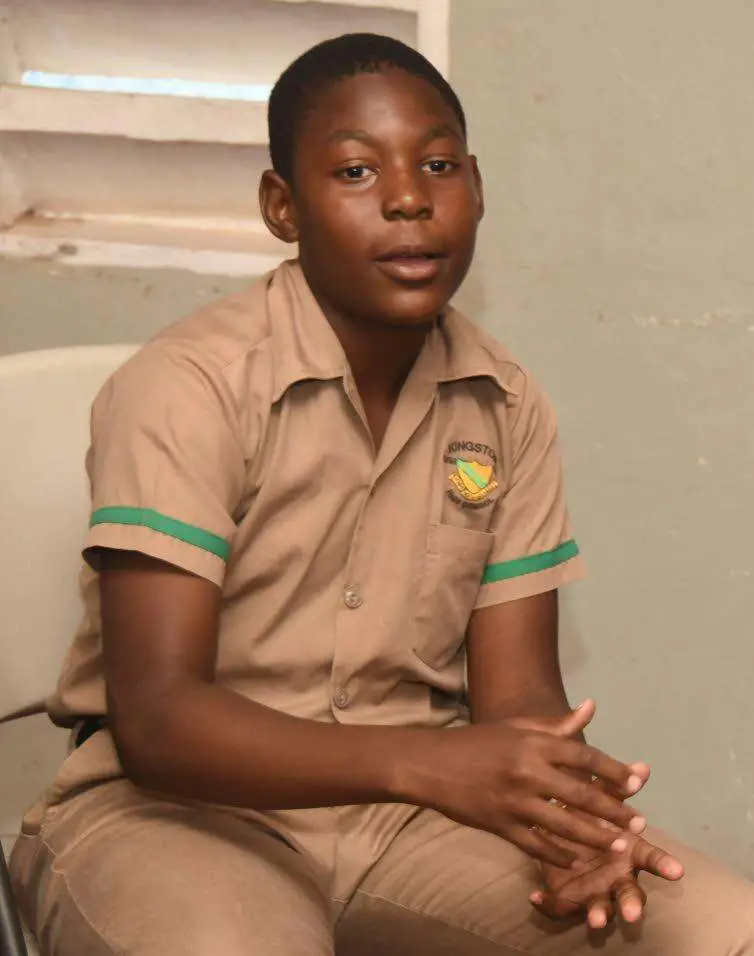
Young students say no to corporal punishment
It was no chalk and talk.
Teachers have absolutely no right to hit students said a group of students in Arnett Gardens during a Jamaica Observer/Rise Life Management session conducted in partnership with the Trench Town Development Committee in a section of the community called Mexico last Thursday.
Majority of the children aged 12 to 18 said parents, however, have that authority but should not go overboard.
Seventeen-year-old Everton Levy said there are other avenues teachers should explore instead of resorting to physically punishing a student.

“If a student verbally disrespects a teacher, they don’t have the right to hit you. The dean of discipline is there to punish the student. You get a three, five-day suspension and have to carry in your parent — that is different,” the Tarrant High School student said.
But when it comes to parents, it’s a different conversation. Levy said most children his age will be left unstructured if their parents aren’t allowed to punish them.
“Most of the kids nowadays growing up are stubborn. They will look in your eyes and do [wrong] things. And you talk to them now, and by the time you blink, it’s the same thing they are doing again.
“But most parents should watch what they use on their children because when they grow up, they are going to do the same thing to their children. For most people, what they grow up and see they do.”

Anthony Creary, 18, agreed, and pointed out that there is a thin line between punishment and harming children.
“It’s how the parents beat the children; certain things that they use can really hurt children. If you ban it and it becomes illegal, that will give children the right to feel like they can do anything; they are always disrespecting their mothers, they are always going to feel like they can do anything they feel like because their mothers don’t have any right to punish them,” he told the Observer.
In July 2021, UNICEF renewed its call for a ban on corporal punishment following the death of four-year-old Nashawn Brown, who was allegedly beaten with a stick by his stepfather in Willowdene, St Catherine.
The Observer learnt that after the incident the boy went to the bathroom at which point the stepfather allegedly volunteered to give him a bath. Shortly after, the boy began exhibiting breathing problems and became unresponsive. He was taken to Spanish Town Hospital, where he was pronounced dead.

According to Kingston High School student 13-year-old Kibee Smith, parents can discipline children but “Not all the time, because sometimes you do some simple things and they lick you for it.”
As for teachers, he said, “they should get in contact with the parents. But some won’t believe the teachers. For example, Deno do something rude and the teacher call him parents. His parents are not going to believe the teacher.”
His schoolmate, Deno Griffiths, added that teachers should only get a pass if they were first physically attacked by troublesome students.
“How yuh mean!” the boy exclaimed.

“They should not beat students other than that, because they are not beating their children when they are doing bad things.”
But for 15-year-old Lascelles Page, beating is a complete no-no. The Wolmer’s Boys’ student said neither parents nor teachers should hit children.
“I don’t think anybody should beat children. It [beating] won’t create a relationship on trust and respect. All it will do is make the kid afraid of you. Plus, there are ways to punish. You don’t have to beat them. It has a negative effect on the child and also the relationship with their parent,” he told the Observer.
Capital punishment, added the 15-year-old, stems from the parents’ emotions, and not really from wanting to punish the child. “It’s from them being angry and aggravated, so they hit the child because of something the child did to make them mad.”
According to the Jamaica Survey of Living Conditions 2018 report, 67 per cent of children ages zero to eight are being slapped, and 18 per cent beaten with an implement. In this age cohort, children between the ages of three and five are more likely to be slapped — approximately eight out of 10.
Page said there are better alternatives to hitting a child, “that are way more beneficial to them. If you punish them, talk to them so they learn their lesson and know why they are wrong, then they can help to grow. If you just lick them, in their head, they are just going to say they got a beating and they don’t know why.”
UNICEF urged the Government to move decisively to outlaw corporal punishment in schools and homes, and said it remains committed to supporting initiatives that help parents and caregivers to learn positive, non-violent ways to communicate with and discipline their young children.

























